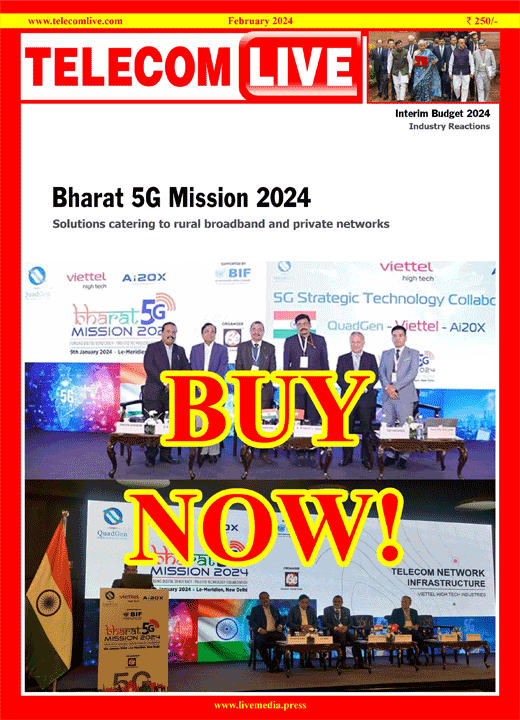Editorial- September -2016
The regulator, Trai has issued a consultation paper on review of interconnect usage charges (IUC). Since IUC rates have a bearing on the tariff that users have to pay, this is a terrain of consumer interest as much as it is a matter concerning the industry. Trai has sought views from stakeholders for reduction of mobile termination charges (MTC) and from the consultation paper, it appears that the intention is to bring MTC in the range of nil to below Rs 0.14 (the present rate) per minute for mobile to mobile calls.
For International incoming calls, the indications are that the termination charges will be increased from the present level of Rs 0.53 per minute. This is a good balance, since the Indian consumer will have to shell out less and Indian ILDOs can gain from settlements from their international counterparts. In any case the continuation of MTC for mobile calls is contrary to Trai’s commitment to the Supreme Court, wherein it had stated that it intended to make TC for mobile calls ‘0’ by 2014. The tariff regime should thus be Bill and Keep (BAK).
Trai’s consultation paper is silent on the SMS sector. This means the regressive termination charge of 2 paisa would continue alongwith the 5 paisa termination charge for transactional SMS, (the kinds sent by Schools, Railways, Airlines, Hospitals etc). This charge was levied purportedly in the name of protecting the consumers from spam messages but it is actually the agenda fulfillment of the Big Incumbents who have been insisting the 10 paisa termination charge for SMS. Before this, SMSes were charged under the BAK mode, where operators used to charge as per their commercial understandings. But, through regulatory favoritism Trai under its former chairman Rahul Khullar, not only introduced TC for SMSes but also expanded it.
Therefore, the consultation paper, though forward looking, has left many issues pending. It is quiet about Carriage Charges, regulation for which has been untouched since 2006, and distances beyond 200 kms continue to attract a rate of Rs 0.65 per minute. The same is the case with transit charges for intra-SDCA calls, which is fixed at Rs 0.15 per minute. Without addressing this One Nation, One Tariff is not possible. You cannot have voice call at Rs 0.60 per minute if Rs 0.65 carriage charge is retained!
The IUC regime started with a Regulation in 2003. Overtime, there have been 12 amendments. There has also been deletion of certain elements of IUC, reflecting market realities. For instance, Access Deficit Charge (ADC) that used to be a component for compensating basic service operators (landlines) for low rentals and low local call charges went out in 2008, because mobile had grown and this structure became redundant. Today, ADC exists in a residual form.
Similarly, when technology and market in the telecom sector are both changing, it will not be wise to look at regulation with a voice network prism. Legacy regulation needs to be discarded just like legacy networks. And if reform is stalled, users can take comfort from the fact that technology is disruptive and with the initiation of free voice calling, the case for IUC reforms is strengthened.











